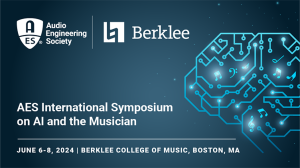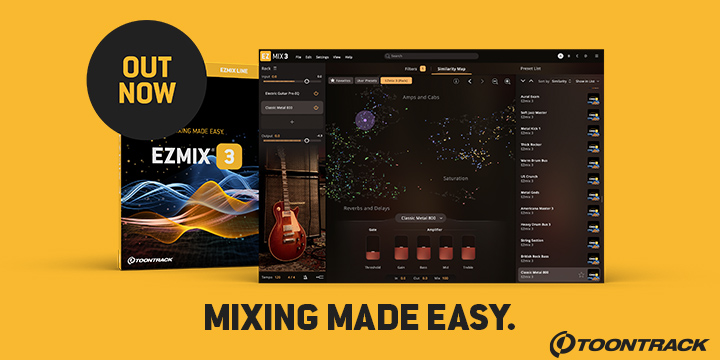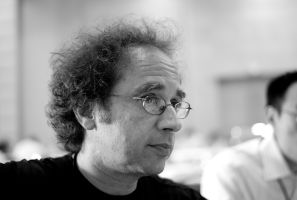Registration opens for AES International Symposium on AI and the Musician
 The Audio Engineering Society (AES) has opened registration and confirmed keynote speakers for the International Symposium on AI and the Musician, to be held June 6-8 in Boston in partnership with the Berklee College of Music.
The Audio Engineering Society (AES) has opened registration and confirmed keynote speakers for the International Symposium on AI and the Musician, to be held June 6-8 in Boston in partnership with the Berklee College of Music.
This two-day event will delve into the impact and applications of AI in music creation and deliver additional insights from industry leaders on the latest developments in AI-powered tools for music production and education. Key topics include intellectual property in the AI era, positive and negative perspectives of AI from musician and technical communities, the evolving creative economy, introducing AI to non-technical users and the next generation, composer-centric AI, augmented music generation, and ethical considerations in AI research.
Attendees will have the opportunity for hands-on experiences with the cutting-edge AI-driven technologies. Tabletop demonstrations and breakout sessions have been designed to create a unique music and AI demo space.
This topic is extremely timely, and it’s important that everyone in this space levels up their understanding of the changes we’re beginning to witness in music making and music consumption. AES members expect the very best from our events, and the AI symposium is no different. We’re including tutorials, hands-on experiences, engaging events, and a special multimodal performance by Rachel Devorah that will offer insights, useful takeaways and interesting interactions.
Symposium Committee Chair and Berklee professor Jonathan Wyner
You won’t want to miss this Symposium. AI is morphing the future of our industry, and AES is at the forefront, leading our members into this next generation of audio engineering.
AES President Leslie Gaston-Bird
Confirmed as keynote speakers for the symposium are composer Tod Machover and technologist Anna Huang. Machover, hailed as "America's most wired composer" and a "musical visionary," will present the keynote, “AI for Musical Discovery.” A trailblazer in breaking artistic and cultural norms, Machover is the Muriel R. Cooper Professor of Music & Media at MIT Media Lab and leads the Opera of the Future group.
Huang is a distinguished researcher who will be joining MIT this fall as tenure-track faculty, leading a new graduate program in Music Technology. She will deliver a keynote address titled “AI for Musicians.” Huang spent eight years with Google Brain and DeepMind's Magenta team, driving research in generative modeling, reinforcement learning, and human-computer interaction for music creation.
Registration is open now, with discounted pricing for AES members and student members on the event website. Full event details, sponsorship opportunities, and additional information about local accommodations and transportation can be found here.
About Tod Machover
Hailed as "America's most wired composer" and a "musical visionary," Machover is a trailblazer in breaking artistic and cultural norms. As the Muriel R. Cooper Professor of Music & Media at MIT Media Lab, he leads the Opera of the Future group. Previously, he served as the first director of musical research at Pierre Boulez's IRCAM in Paris. Machover's compositions have been commissioned and performed by renowned ensembles, opera houses, and soloists worldwide. He has pioneered innovative music technologies like hyperinstruments and hyperscore and explores the creative possibilities of AI. Currently, Machover is working on his next opera, “The Overstory,” inspired by Richard Powers' Pulitzer Prize-winning novel on the connection between humans and the natural world.
About Anna Huang
Huang, a distinguished researcher, will be joining MIT this Fall as tenure-track faculty, leading the new graduate program in Music Technology. Huang spent eight years with Google Brain and DeepMind's Magenta team, driving research in generative modeling, reinforcement learning, and human-computer interaction for music creation. Her groundbreaking work includes Music Transformer, the first application of transformer architecture to music, and the highly cited paper in music generation. She also created Coconet, the ML model behind Google's Bach Doodle, harmonizing millions of melodies globally. She played a pivotal role in the AI Song Contest and holds a Canada CIFAR AI Chair at Mila in Montreal. Huang holds a PhD from Harvard University, a master's from the MIT Media Lab, and a dual bachelor's in music composition and computer science from the University of Southern California.

Discussion
Please log in to join the discussion











